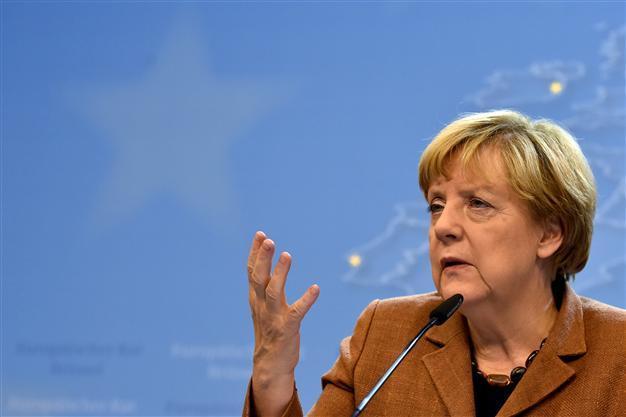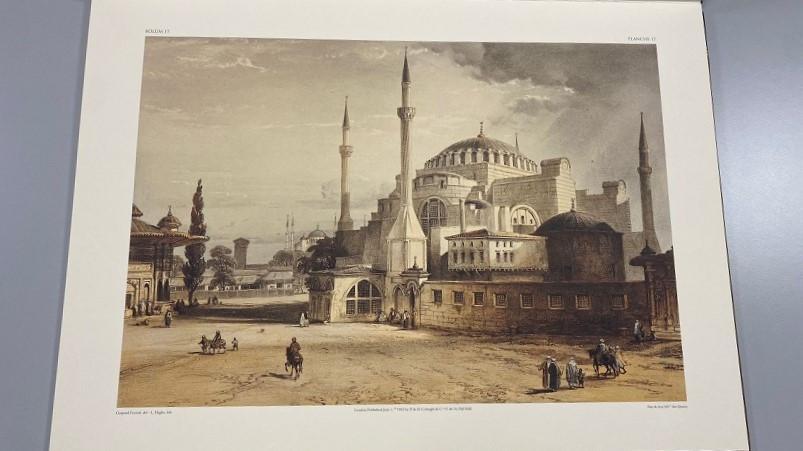Russia urged to explain Syria buildup as diplomatic drive steps up
PARIS - Agence France-Presse

Germany's Chancellor Merkel gives a news conference after an European Union leaders extraordinary summit on the migrant crisis, in Brussels September 24, 2015. REUTERS/Eric Vidal
Russia faced mounting calls on Sept.24 to explain its intentions in the Syrian conflict as European diplomats met after Germany's leader said President Bashar al-Assad should be involved in any peace talks.Europe's migrant crisis has given fresh impetus to efforts to end Syria's brutal four-year conflict and the question of Assad's role in an eventual solution is firmly back in the spotlight.
"We have to speak with many actors, this includes Assad, but others as well," German Chancellor Angela Merkel said late on Sept.23.
She was speaking ahead of a meeting in Paris on Sept.24 between the foreign ministers of France, Germany, Britain and EU foreign affairs chief Federica Mogherini, as Europe seeks to revive dormant efforts to resolve the crisis.
"The idea is to clarify positions, to know how each side sees a political transition in Syria, to find a common European position ahead of the UN General Assembly" which begins on Sept.27, a French diplomatic source told AFP.
Russia stoked fresh fears in the West on Sept.24 over its military buildup in Syria by announcing it would hold naval drills in the eastern Mediterranean region in September and October.
While the exercises were not linked to the conflict, they come after a Russian buildup of troops, tanks and fighter jets in Syria, its long-standing ally.
French Defence Minister Jean-Yves Le Drian called on Moscow to justify the "very significant" buildup and said if its intention was "to protect President Bashar al-Assad", it should say so.
British Defence Secretary Michael Fallon, speaking alongside Le Drian after they held talks, said he was "equally concerned" by the Russian buildup in Syria "which will only complicate what's already a very complicated and difficult situation".
NATO head Jens Stoltenberg also urged Moscow to make its intentions clear and play a constructive role in the fight against the Islamic State of Iraq and the Levant (ISIL).
"There is no doubt that there is a strong Russian presence in the eastern part of Ukraine," Stoltenberg said in an interview with AFP.
Syrian officials have said that Russia is boosting its fight against ISIL which has seized large parts of its territory.
The Syrian military for the first time on Wednesday deployed drones supplied by Russia in its fight against the jihadists, a security source in Damascus said.
"Russian weapons are starting to have an effect in Syria," the official told AFP.
In an interview with Interfax news agency, the Syrian ambassador to Russia Riad Haddad said that Russia's support on the ground "will happen if it is needed."
"Russia's help will help Syria finally win over terrorist groups," he said, adding that there is a "high level of cooperation" between Syria, Russia and Iran on the conflict.
European leaders, faced with the worst migrant crisis since World War II, called after a summit Wednesday for a "renewed UN-led international effort" to end a war that has forced some 12 million people from their homes.
However significant obstacles remain with major players in the West, Gulf, Russia and Iran pursuing vastly different military and diplomatic tactics.
Western leaders have long demanded Assad's departure as part of any diplomatic solution, while Russia and Iran want him to stay.
In a sign the Western stance may be softening, Washington and London said recently Assad may not have to step down immediately if a settlement is reached to end Syria's civil war.
But French President Francois Hollande has insisted "there can be no transition without his departure."
And a German government source warned Merkel's comments signalled "nothing new" as representatives of Assad's regime had often sat at the negotiating table.
"For a political solution one needs Russia, Iran and Saudi Arabia at the table ... that's the challenge."
















